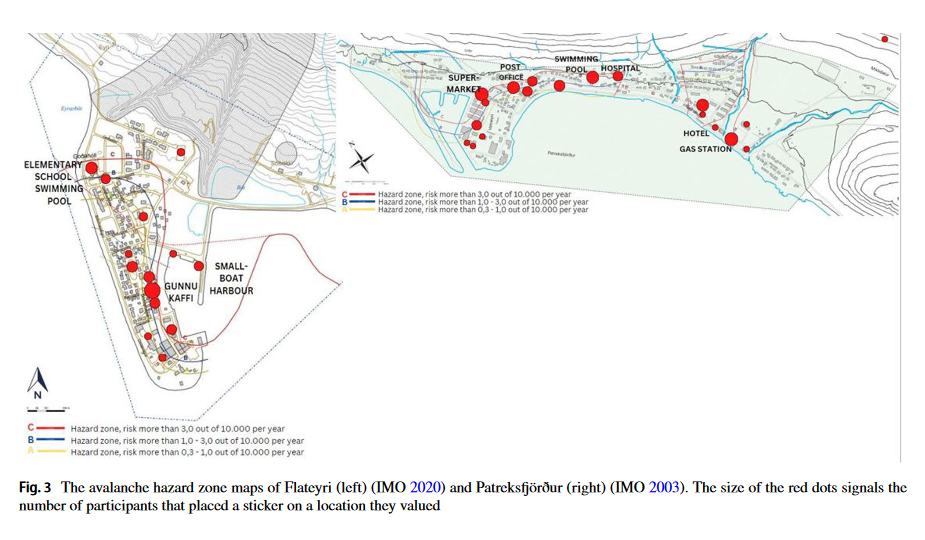Place attachment and avalanche threat
Matthias Kokorsch, academic director of the Coastal Communities and Regional Development master’s program at UW and Jóhanna Gísladóttir, from the Agricultural University of Iceland (Landbúnaðarháskóli Íslands), have been researching the interaction between place attachment and natural disasters with the CliCNord project. The CliCNord project examines how small rural communities in the Nordic countries understand their own situation, how they handle adverse events, and under what circumstances they need help from the established system and civil society organizations. There are different hazards that affect local communities across the Nordic countries that are regarded as a direct consequence of climate change, like coastal flooding, cloudbursts, wildfires, slush avalanches, and flash floods for example. In the CliCNord project, there are 8 different cases in 5 countries: Denmark, Sweden, Norway, the Faroe Islands and Iceland.
Matthias and Jóhanna are researchers in the Icelandic team of CliCNord who conducted their research on avalanches in the Westfjords. They used a case study where they had participants from two small remote communities, Patreksfjörður and Flateyri. The participants took part in a focus group and individual interviews. The findings suggest that both communities show a high level of place attachment, particularly with regard to the natural and social dimensions. A positive impact of the place attachment is a willingness for volunteering and local engagement. That can increase the preparedness of the community. There were also negative consequences of place attachment, but they were not as prominent. Residents do not consider their communities vulnerable, despite the risk.

Matthias recently took part in a conference in Enschede, Netherlands called NEEDS (North European Emergency and Disaster Studies), where he presented the results from their research. In addition, he co-hosted a panel titled “How can research contribute to capacity building?”. One presentation was based on the excellent theses from two UW students, Aine Lyones and Frances Simmons. At the conference, it was announced that Matthias and Jóhanna got their results from their case study published. The open-access article can be found here.

